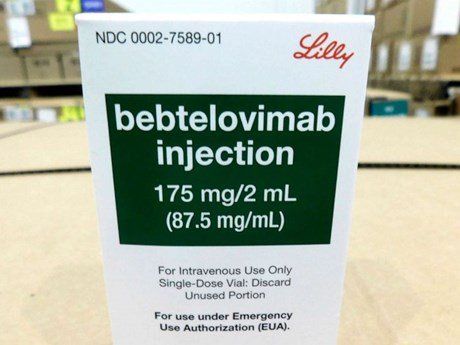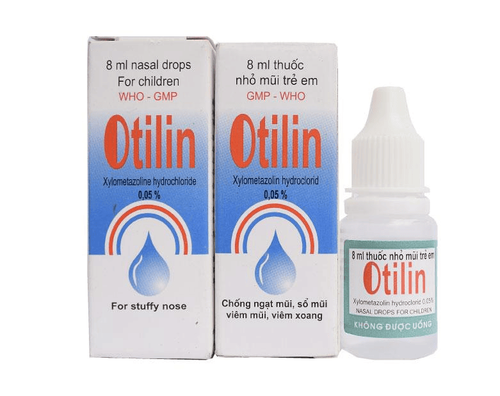This is an automatically translated article.
The term “Anosmia- loss of smell” refers to the complete loss of smell. It can be caused by an infection, such as a cold or the flu. It can also be caused by nasal polyps or other blockages. Loss of smell is also a common symptom of COVID-19. Let's read more articles below to understand more about what loss of smell is.
1. What is loss of sense of smell?
Every day, we breathe about 23,040 times and move about 134 cubic meters of air. It takes us about five seconds to breathe – two seconds to inhale and three seconds to exhale – and in that time, odor molecules flood our system. Inhaling and exhaling, we smell all kinds of odors from aromas to foul odors.
Each person's sense of smell is controlled by the brain by a certain process as follows. When an odorant is in the air, it is absorbed by the lining of the walls of the upper aisle. Nerve cells are located under the mucosa and are sensitive to various substances. When a neuron is activated by the presence of molecules in the lining, it sends a signal to the brain that the brain interprets as an odor. Most odors are synthetic, taking the signals of a number of different cells that react to different substances and interpreting those signals as a particular odor. For example, the smell of smoke can be related to dozens of impurities in the air, combinations of which are analyzed and interpreted by the brain as smoke. Anything that interferes with these processes, such as stuffy nose, blocked nose or nerve cell damage, brain tumor, head trauma can lead to loss of smell.
The ability to smell also affects our ability to taste. Without a sense of smell, your taste buds can only detect certain flavors, and that certainly affects your quality of life.

Bị mất khứu giác là tình trạng thường gặp ở một số người bệnh
2. Causes of loss of sense of smell
Anosmia is usually caused by a swollen or blocked nose that prevents odors from reaching the top of the nose. Loss of smell is sometimes caused by a problem with the system that sends signals from the nose to the brain.
Here are the main causes of anosmia
* Irritation of the mucous membranes in the nose
This could be due to:
Sinusitis Common cold Smoking Flu Allergies (allergic rhinitis) Congestion Non-allergic chronic congestion (non-allergic rhinitis) Colds are the most common cause, accounting for up to 40% of cases of partial and temporary loss of smell. In these cases, the anosmia will go away on its own.
* Congestion of the nasal passages
Loss of smell can occur if something or block is obstructing the flow of air into your nose. This may include:
Nasal polyps Tumors Bone deformities inside the nasal cavity or nasal septum from birth * Brain or nerve damage
Having receptors inside the nose that send information through nerves to Brain. Anosmia can occur if any part of this pathway is damaged. Possible causes include:
Old age Alzheimer's disease Brain tumor Huntington's disease Hormone problems Low thyroid As a side effect of certain medications such as antibiotics or blood pressure medications Multiple sclerosis Parkinson's disease Schizophrenia Epilepsy Diabetes Due to chemical exposure that burns the lining of your nose Brain or head injury Brain surgery Malnutrition, vitamin deficiency Kallmann syndrome Adrenal insufficiency syndrome Ear Cerebrovascular disease Cushing's syndrome Hypothyroidism Sjogren's syndrome Systemic lupus erythematosus Brain, cavernous or nasal tumors Turner syndrome Radiation therapy Long-term alcoholism A blow to the nose In rare cases, people give birth She did not have a hereditary sense of smell. This is called congenital loss of sense of smell.
* Special
Loss of smell may be because you have been infected with COVID - 19. If you lose your sense of smell with a high fever above 38 degrees, chest pain and difficulty breathing, then you are most likely infected with SARS - COV 2 virus. So it's best during the current outbreak of the disease, if you lose your sense of smell, it's better to do the Anti COVI quick test.

Polyp mũi là một trong các nguyên nhân khiến bạn bị mất khứu giác
3. Symptoms of loss of sense of smell
People with anosmia may lose their sense of smell gradually or suddenly. You may notice a familiar scent that smells different before it's completely gone.
4. Diagnosis of loss of smell
If you experience a loss of smell that you cannot attribute to a cold or allergies or the condition does not improve after a week or two, tell your doctor. Your doctor can look inside your nose with a special instrument to see if a lump or tumor is impairing your ability to smell or for an infection.
Loss of smell is difficult to identify. Your doctor may ask you some questions about your current symptoms, examine your nose, do a physical exam, and ask about your health history.
They may question when the problem started, if all or only some types of smell are affected and you can taste the food. Depending on your symptoms and medical history, your doctor may also perform one or more of the following tests:
CT scan of the brain to look for damage if there is an MRI scan, using radio waves and magnets acupuncture to see the brain X-ray of the skull Nasal endoscopy to get the most complete view of the insides of your nose Quick test for COVID-19 if needed
5. Complications of loss of sense of smell
People with anosmia can lose interest in food and drink, leading to malnutrition and weight loss.
People with anosmia should make sure to have a working smoke alarm in their home at all times. They should also be cautious about storing food and using natural gas because they can have trouble detecting spoiled food or gas leaks.
Recommended precautions include:
Properly label foods with an expiration date Read labels on bottles containing chemicals such as kitchen cleaners and insecticides Use electrical equipment instead of products with gas
6. Treatment of loss of smell
Many conditions that can impair your sense of smell are fixable, but it depends on the root cause of your condition.
If the loss of smell occurs at the same time as you have a cold, allergy or sinus infection, it will usually clear up on its own in a few days. Short-term use of over-the-counter decongestants can clear your nasal passages so you can breathe more easily. However, if the congestion gets worse or doesn't go away after a few days, see your doctor. You may have an infection and need antibiotics, or it may be due to another medical condition.
At the same time, you should also clean your nose to help remove allergens and mucus from the nasal cavity. You can buy ready-made sterile physiological saline solution or make your own as follows:
Pour 1 cup of distilled or boiled tap water into a freshly washed container. Add 1/2 teaspoon salt and 1/2 teaspoon baking soda to the water. Pour the mixture into a squeeze bottle or medical syringe. Tilt your head back. Instill solution into one nostril, aiming for the back of the head, not the top of the head. Let it drain out the other nostril or your mouth. Repeat several times daily. If a tumor or polyp is present, surgery may be needed to remove the obstruction and regain the sense of smell.
If you suspect a drug is affecting your sense of smell, talk to your doctor and see if there are other treatment options that won't affect your ability to smell. However, never stop taking your medicine without first talking to your doctor.
Sometimes a person will regain their sense of smell spontaneously. Unfortunately, anosmia isn't always treatable, especially if the cause is age-related. However, you can take steps to live with not being able to smell better and safer. For example, place fire detectors and smoke alarms in your home or office and be extra careful with leftovers. If you have any doubts about the safety of a food, do not eat it.
If you smoke, quit. Smoking can dull your senses, including your sense of smell.
* A few natural ways to improve your sense of smell
In addition to medical methods there are several ways you can apply at home which is Smell Training – this is a natural treatment. During olfactory training, the patient sniffs a series of four strong odors that can be found in a person's home, or in the form of essential oils. Each scent is gently sniffed for 20 seconds. This process was repeated three times daily for 6 weeks. She adds that it takes a long-term commitment to see improvement.
Smell training can be most effective if you work with the same four smells each day, rather than alternating. You should also focus completely on the scent, giving your full attention for 20 seconds.
Strong smells recommended for olfactory training include: Ground Coffee, Rose, Citrus, Eucalyptus, Vanilla, Frankincense, Indigo, Clove, Mint...
During olfactory training sense, you may encounter strange aromas that are not similar to what you should smell. This includes odors such as burning rubber or bodily waste. This is called anosmia. Anosmia can last several weeks or longer but is usually temporary.

Bạn có thể luyện tập khi bị mất khứu giác với mùi trầm hương
7. Can loss of smell be prevented?
Since loss of smell is a symptom of many health-related conditions, it is not always preventable. However, there are some things you can do to reduce your risk:
Avoid toxic chemicals and environments. Stay healthy and avoid catching a cold. Don't smoke. Wear protective gear when playing sports, as loss of smell can be caused by brain injury.
Please dial HOTLINE for more information or register for an appointment HERE. Download MyVinmec app to make appointments faster and to manage your bookings easily.
References: my.clevelandclinic.org, webmd.com, healthline.com












